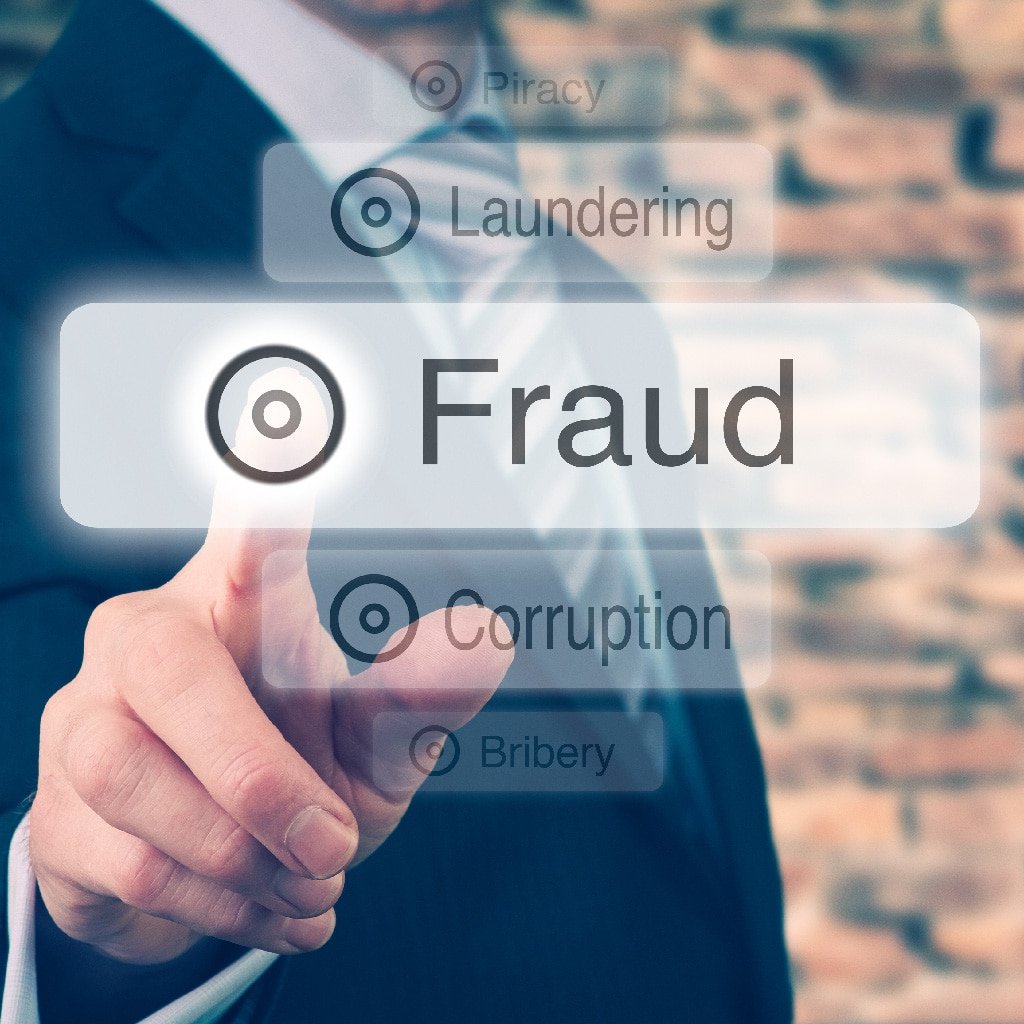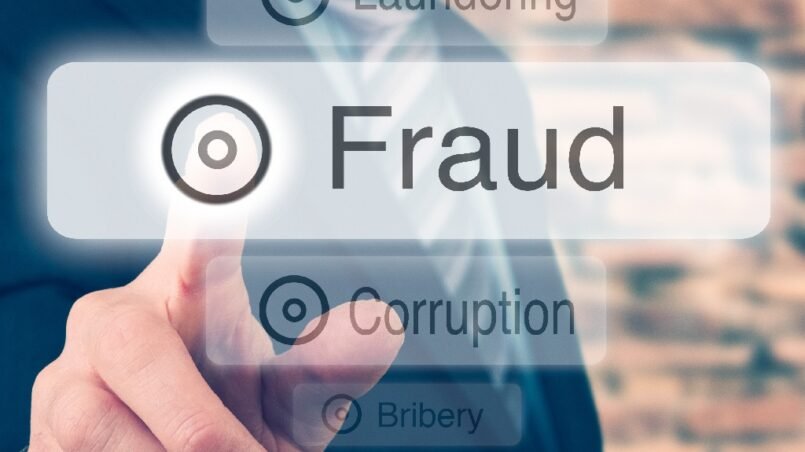In recent years, the expanding size of organizations and increasing opportunities to challenge limits have resulted in a rise in corporate fraud. Fraud can involve deceptive actions taken against a company or perpetrated by the company itself. Companies might engage in fraudulent activities through various methods to enhance their industry reputation and shield themselves from audits.
Conversely, a company might fall victim to financial statement fraud, asset theft, and corruption perpetrated by its employees. To prevent such misconduct, it is essential for the corporation to understand and comply with proper business regulations.

What Corporate Fraud is
Corporate fraud refers to unethical, illegal, or deceptive actions committed by a company or an individual within the organization. These fraudulent schemes can often be quite intricate, making them difficult to identify. Detecting a well-executed corporate fraud scheme may take months of investigation, even with a team of forensic accountants on hand.
When top executives of major corporations engage in corporate fraud, it often reaches a scale involving billions of dollars. This type of misconduct impacts the company’s clients, creditors, investors, other businesses, and ultimately harms the company itself along with its employees.
Recent examples of significant corporate fraud include those involving Enron and WorldCom. Enron, a major Texas-based energy company with more than 20,000 employees, made substantial investments in the unpredictable telecommunications network market during the 1990s. To conceal their financial losses, they employed an accounting technique known as mark-to-market (MTM). Once this fraudulent activity was exposed to the public, Enron’s stock price plummeted from $96 to just $0.25 per share. The company ultimately declared bankruptcy in December 2001.
WorldCom, a telecommunications company focused on long-distance calls, made significant investments in routing equipment. However, they ran into difficulties and concealed their financial losses using questionable accounting practices. The company’s losses amounted to $11 billion, marking the largest accounting fraud in U.S. history at the time. Ultimately, WorldCom filed for bankruptcy and was acquired by Verizon.
Various Forms of Corporate Fraud
In this section, we will provide a concise overview of the various types of corporate fraud, each characterized by distinct methods and effects. Recognizing these different forms is essential for detecting and preventing fraud within a corporate environment.
Financial Statement Fraud
Financial fraud encompasses various types, such as financial statement fraud, payment fraud, account takeover fraud, investment fraud, and advance fee fraud.
According to the Financial statement fraud hiding or manipulating information shared with stakeholders about a company’s financial condition. There are two main techniques used in committing this type of fraud:
- Inflating revenues by reporting financial assets as being more positive than their actual state.
- Minimizing liabilities involves concealing obligations, costs, and unprofitable investments.
Manipulating financial statements is illegal and will adversely affect stakeholders. This may lead to legal actions with significant consequences, jeopardizing the company’s long-term viability and reputation.
Asset Misappropriation
Asset misappropriation occurs when employees or executives illegally take or use company resources like cash, inventory, or intellectual property. Some real-world instances of asset misappropriation include:
- Theft of cash from the company vault.
- Skimming of cash receipts involves not reporting the received money.
- Deceptive disbursements, including billing scams, payroll frauds, expense reimbursement frauds, and fictitious expenses.
- Check tampering involves an employee altering checks to deposit them into their own account.
Bribery
In a corporate setting, bribery involves offering or accepting something valuable to sway a business decision. This act is typically carried out in secret and without the company’s approval. Individuals at all levels—executives, mid-managers, and employees—can be implicated in such activities. Once discovered, bribery leads to legal repercussions and significantly harms the company’s reputation.
Corruption
Business corruption appears in numerous forms and at different levels of corporate activity or spheres of influence, including within the company itself, throughout the supply chain, across broader commercial operations, and within the surrounding social environment.
Conflicts of interest and kickbacks occur when individuals personally gain from decisions or actions made on their behalf. For instance, an external consultant might receive rewards from a company for promoting specific products or services. Such conflicts can significantly weaken corporate governance.
What Are the Warning Signs of Corporate Fraud?
Detecting corporate fraud early on is crucial. Identifying warning signs plays a key role in preventing the escalation of fraudulent activities. It’s essential for individuals at every level of an organization to be aware of these indicators.
Unusual Financial Transactions or Discrepancies
Irregularities in financial records may indicate fraudulent activity. For instance:
- Accounting anomaly: increasing revenue without a corresponding increase in cash flow.
- Consistent sales growth while competitors face challenges.
- High volume of third-party transactions.
- Overvaluation of assets.
- Significant management bonuses tied to short-term objectives.
Alterations in Employee Conduct or Lifestyle
Unexpected shifts in an employee’s behavior or lifestyle might suggest potential involvement in fraudulent activities:
- The employee seems diligent, frequently taking on additional shifts.
- An employee is discreet about his responsibilities.
- Feeling stressed for no apparent reason.
- A sudden increase in personal finances, described as a lottery win or an inheritance.
Lack of Internal Controls or Oversight
An internal control system that does not adequately supply information for an organization’s financial data is deemed weak. This suggests that the policies and procedures may lack specificity, creating gaps in controls that could permit errors or fraud to occur.
A weak control system can result in undetected deficiencies that aren’t corrected swiftly, potentially causing significant damage. Enhancing internal controls allows companies to minimize the risk of fraud and errors while ensuring precise financial reporting.
Sudden changes in Company Performance or reporting
Sudden changes in a company’s performance metrics may serve as warning signs for potential fraud. Here are some steps to take to prevent fraudulent activities:
- The cash flow statement, also known as the balance sheet, is larger than usual.
- Debt-to-equity ratio (with debt being notably lower).
- Company’s annual report (notable changes observed).
- Deterioration in the quality of products and services, with a lack of reporting on customer returns.
How is Corporate Fraud Detected?
Combining traditional and modern methods is essential for effective fraud detection. Implementing proactive detection strategies is crucial, and here we will outline several of them.
Internal Audits and Investigations
Regular internal audits and investigations are essential for identifying and preventing fraud. Conducting an independent and comprehensive audit process is vital.
- Auditors will identify signs that suggest issues in the financial statements or records.
- Their procedures involve conducting substantive tests to assess the accuracy of specific accounts or transactions.
- To detect any unusual patterns or trends, auditors will compare financial information with industry standards and data from previous periods.
External Audits and Forensic Accounting
External audits and forensic accounting offer an independent assessment capable of uncovering fraud. By combining accounting principles, auditing techniques, and investigative skills, they conduct specialized examinations that improve the detection and prevention of fraud within organizations.
Financial parameters such as profitability, liquidity, and solvency are evaluated in comparison to industry standards and competitor performance. This analysis aids forensic accountants in identifying any anomalies or deviations that may indicate potential fraud.
Whistleblower Reports and Hotlines
Whistleblower systems play a crucial role in fraud detection and are among the primary methods for uncovering fraudulent activities in certain companies. Beginning in 2019, EU member states commenced the adoption of measures aimed at safeguarding whistleblowers from retaliation and offering anonymous channels to report corruption.
Use of Technology in Fraud Detection (Data analytics, AI)
In the current AI landscape, tools such as data analytics and artificial intelligence are increasingly employed to identify fraudulent activities. By utilizing machine learning algorithms, AI systems can rapidly analyze vast databases to detect anomalies and irregular patterns indicative of fraud. Initially, these systems create a baseline of normal transaction patterns and user behaviors. Subsequently, the algorithm continuously monitors the data for any deviations from this established norm.
What are the Consequences of Corporate Fraud?
Corporate fraud can have severe repercussions for both individuals and organizations, affecting them in various ways such as legal troubles, financial losses, and damage to their reputations.
Legal Consequences
To prevent, detect, and prosecute fraud, governments and international organizations have established comprehensive policies and laws. Businesses found committing or concealing fraudulent activities often face legal consequences such as fines and imprisonment. These repercussions can apply to both individuals and companies alike.
Financial Impact
Companies involved in fraud also encounter financial consequences, such as:
- Decline in revenue due to clients departing because of a damaged reputation.
- Value for shareholders (their shares can potentially become worthless)
- The potential for bankruptcy, as seen in examples like Enron and WorldCom, etc.
Reputational Damage
Corporate fraud can cause long-term harm to a company’s brand and erode customer trust. Negative news coverage of fraudulent activities undermines public perception, leading to unfavorable opinions about the company. When a brand’s reputation is tarnished, both customer loyalty and investor relations are likely to decline.
Corporate Fraud Prevention Tips
Preventing corporate fraud is best achieved through a proactive strategy that combines robust internal controls, employee training, and fostering a transparent organizational culture.
Implementing Strong Internal Controls
To effectively prevent fraud, it’s important to implement regular internal controls along with:
- Division of responsibilities—specifically assigning accountability for each task (project).
- Approval processes require individuals to inform their superiors before taking any action.
- Routine audits, particularly external ones, are essential for identifying irregularities that can result in fraud.
Employee Training and Awareness
Conducting regular employee training on ethical behavior and fraud prevention is essential. This ensures that employees stay informed about potential fraudulent techniques, learn how to identify them, and understand how to steer clear of involvement.
Encouraging a Whistleblower Culture
A culture that encourages whistleblowing can play a crucial role in the early detection of corporate fraud. It is essential for every company to create a secure environment where employees feel safe to report suspicious activities without fearing any form of retaliation.
The Role of a Corporate Fraud Attorney
Attorneys specializing in corporate fraud play a crucial role as advisors for managing and mitigating the risks of fraudulent activities. They possess expertise in navigating complex legal issues and offer strategic guidance throughout investigations and court proceedings.
When to Hire a Corporate Fraud Attorney
Explore the situations in which a company may need to hire a corporate fraud attorney, such as during an investigation or when confronted with allegations.
Services Provided by Corporate Fraud Attorneys
Outline the variety of services, such as offering legal representation, carrying out internal investigations, giving compliance advice, and defending against fraud accusations.
How to Choose the Right Corporate Fraud Attorney
Provide advice on choosing a lawyer by emphasizing their qualifications, experience, and successful history in managing corporate fraud cases.
Detecting and preventing corporate fraud at an early stage is the optimal solution for companies and stakeholders alike. This approach helps limit losses and allows for the implementation of a recovery plan.
Upholding corporate integrity is essential, as it involves fostering ethical conduct across the entire organization. This commitment to integrity entails acting with honesty and transparency while ensuring individuals take personal responsibility for their actions.
Companies must proactively tackle fraud risks in order to cultivate a positive company outlook, attract and retain employees, enhance customer relationships, and boost business performance.


